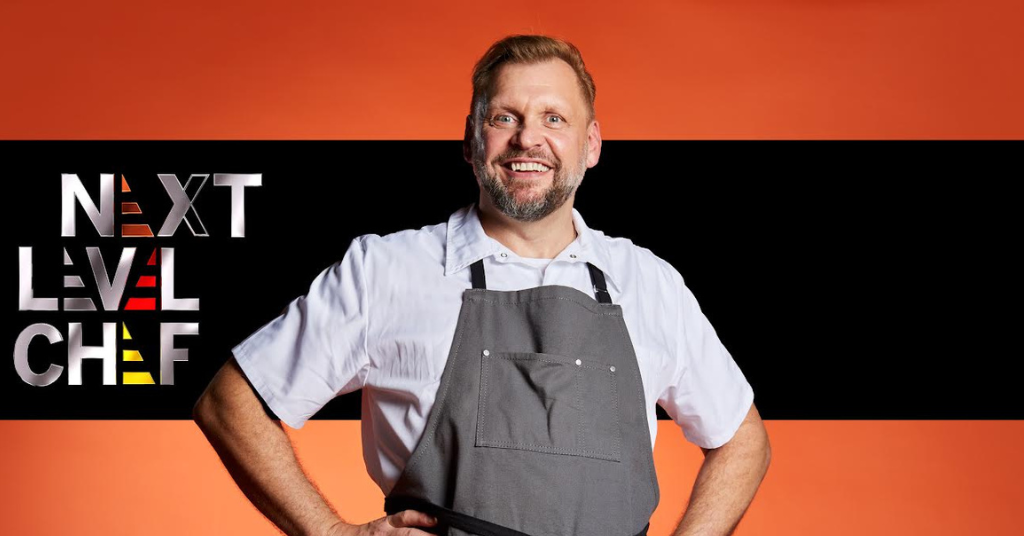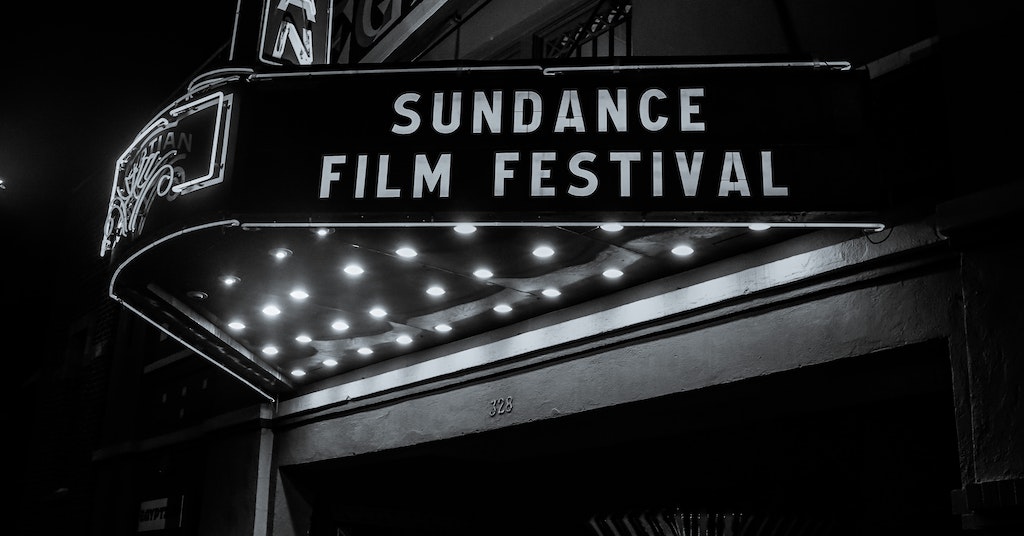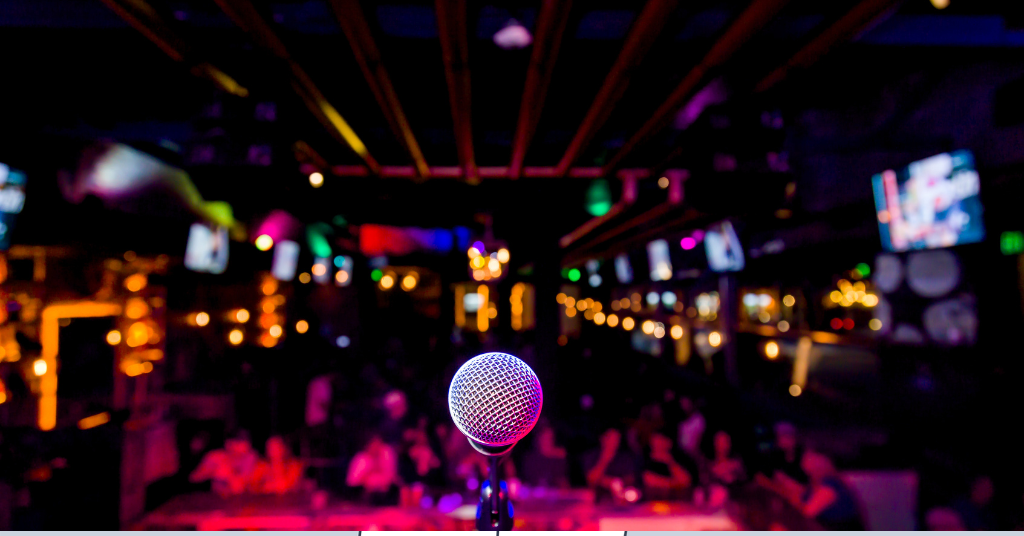The Roger MultiTalker Network
September 6, 2023Holding Her Own: Brooklynn’s Story
October 23, 2023From Gordon Ramsay to Hearing Health Advocate

Ian Golding, otherwise known as Gold, was a semi-finalist on the Gordon Ramsay show Next Level Chef. He also has tinnitus in both ears and a corresponding high frequency hearing loss, which is getting progressively worse. On the heels of World Alzheimer’s Month, Hearing Like Me talked to the communication skills expert, trainer, motivational speaker, and private chef about his many roles and his hearing health advocacy after his mother’s Alzheimer’s diagnosis.
Hearing Loss Journey
The London born and bred Gold, who now lives in a village in Hertfordshire just north of London, has been married to Sarah for over 30 years. They have two daughters. Gold was diagnosed with tinnitus in his late 20s. It was confusing because the doctors kept asking if he worked with explosives or firearms, neither of which he ever had. “It was also the first time I’ve ever been diagnosed with something for which there wasn’t a pill or a cure, which I’ve always found hard to accept,” Gold says.
Also frustrating is that Gold hasn’t been able to figure out the cause of his tinnitus. Recently, his audiologist told him about research suggesting that teenage rugby and the head collisions involved could be a factor in developing tinnitus and hearing loss later in life. Because Gold played a lot of rugby at school, this is a potential factor. But he will likely never know.
Since his initial diagnosis over 20 years ago, his tinnitus and a corresponding high frequency hearing loss has slowly but steadily gotten worse. He was offered hearing aids via the UK Health Service, but he called them “Granny Bricks,” because they were big, ugly, pink, old fashioned, and very conspicuous. He tossed them in the drawer and forgot about them, hoping the issue would go away.
However, as Gold got older, his high frequency hearing loss grew more pronounced and started to affect his home and work life. The TV got louder at home, and he started to want and then need subtitles on TV programs. At work, it became an embarrassing hindrance. “I was someone who was running seminars and speaking at conferences about exceptional communication,” Gold says, “but I had to ask people two or three times to repeat their names before I could hear them!”
No longer able to ignore the problem, he explored private audiologists to see if technology had advanced to reduce the size of hearing aids. The audiologists he found were expensive and he wasn’t even 100 percent sure he would go through with it and get a hearing aid.
Mother’s Alzheimer’s Diagnosis
What forced Gold’s hand was to become aware of research that links unaided hearing loss with increased chances of developing dementia or Alzheimer’s. His mother was on her own hearing loss journey when she received her Alzheimer’s diagnosis. “I’ve seen first-hand the way one issue can disguise the development of the other, so this obviously made this issue and research a much more personal one,” he says. “Alzheimer’s is a devastating condition not just for the individual but for a whole family. It’s something I wouldn’t wish for anyone.”
At this point in his hearing loss journey, Gold was saved by a random conversation. A painter and decorator working in his house was wearing two modern and stylish hearing aids. Gold asked about them and discovered that the worker also had tinnitus and a hearing loss similar to his. He recommended a local audiologist, whom Gold calls his hearing savior.
A Hearing Aid Changed His Life
Gold wears a Phonak Audeo P90 in his right ear and says it has radically changed his professional and home life. He will likely need to start wearing an aid in his left ear in the near future due to the deterioration of his hearing. Recently he tried some other brands because of the newer technology and more channels, but they didn’t compare to Phonak’s sound and streaming quality. He also likes how subtle and hidden the hearing aid is.
Coach, Trainer, and Motivational Speaker
Gold is a coach, trainer, and motivational speaker on communication skills, confidence, impact, and charisma. He runs a UK-based training company called Glow Training, which works with companies and industries in the UK, Europe, and the U.S. He has been doing this for almost 20 years, following a 12-year acting stint. “Essentially what I do now is take a version of acting skills into business to help everyday people become more aware and gain more control over their own behavior,” Gold explains. In doing so, this controls how they come across to others and gain confidence. This is his main job and something he truly loves.
Life As A Chef
Gold’s new life as a chef started pretty recently. He is a passionate and experimental, self-taught home cook. He learned how to cook because he loves to eat and always wanted to recreate at home nicer and more complex dishes he saw on TV. Family and friends always told him he should try to go on a TV cooking show. He saw an ad for Next Level Chef on Facebook and expressed his interest, never thinking he’d actually get on. Then when he was accepted, he expected to be out the first week because he was competing against professional chefs.
But each week, he improved, and ended up placing fourth. He was lucky enough to get ingredients that he knew and loved, especially lobster – which he cooked enough on the show to be called the Lobster King. One week he did have a disaster when he served a raw turkey burger to Chef Ramsay and the other judges. “I got the full Gordon Ramsay treatment that week!” he recalls.
While Gold didn’t ask for any additional consideration on the show due to his hearing loss, it did have an effect. There were a couple of times when Ramsay was shouting a time call or saying it was time to plate up, but Gold didn’t hear him because he was facing the wrong direction. “I got me a Gordon ear bashing and it made me almost miss service!” he says.
Gold says that Ramsay in real life was much nicer than his TV persona would suggest. It was a dream come true to be mentored; he learned so much.
Going Private
Since the show, Gold has become a private chef. He has cooked for weddings, run food trucks at festivals, and regularly hosts pop-up restaurants. It’s a lot of work, especially with his training business, but he absolutely loves adventure and is hoping to make food a full-time endeavor in the future.
Hearing Health Advocacy
Being on Next Level Cook was an important milestone in Gold’s hearing loss journey, because his hearing aid was on the show in a way it never had been before, and to a massive national audience. A lot of friends who hadn’t realized he wore an aid saw it and asked about it for the first time. “It’s really made me feel that it’s something I should be more open about, because I know there is still a lot of stigmas about wearing hearing aids,” Gold says.
Gold feels he’s at a point where he needs to share the things that he’s learned to try to help other people who might be starting out or at a difficult point on their hearing loss journey – especially men. “I know from my own experience that men can be quite vain about something which has a social connotation of weakness,” Gold says. “I think it’s ironic that no one has a problem wearing glasses, and glasses can even be statements of individuality or personal expression, but hearing aids are still associated with weakness and old age, so people are embarrassed about wearing them.”
Gold also doesn’t think people know enough about the link between dementia, Alzheimer’s and unaided hearing loss. “If more people knew, it would galvanize them to get tested and aided,” he says. He talks about it more in social situations. He continually meets men in their 40s and early 50s who admit they have hearing loss or tinnitus, and that they’ve had it for years. They simply cope and pretend it doesn’t exist, hoping it will go away.
“My advice to anyone who starts to notice or even suspect that they have a hearing loss is: If you think you’ve got a hearing loss, you almost certainly do!” Gold says. “Go get tested.” If cost is an issue, there are experts like Liz Ears, his audiologist, who will test for free and give great advice about the next steps. “The design in today’s hearing aids make them a sleek, even stylish accessory, and the technology is so advanced it makes using them something you want to do rather than need to do,” Gold adds. “I plan to make it a bit of a mission to get this message out there and play a tiny part in breaking down the remaining stigma around hearing loss and hearing aids.”
Follow Gold on Instagram
- Author Details



